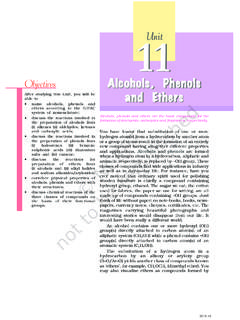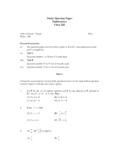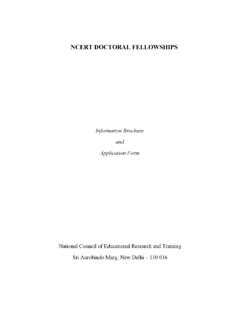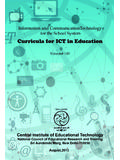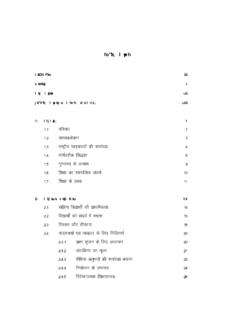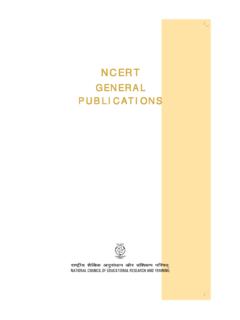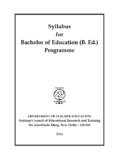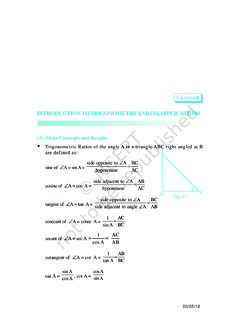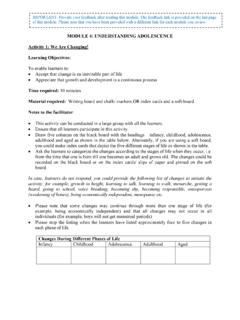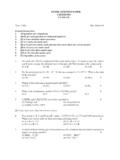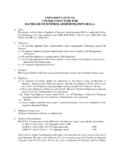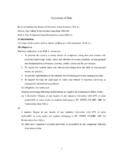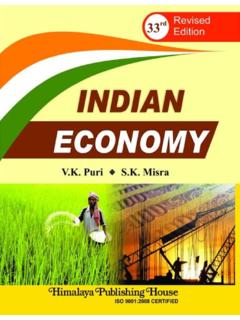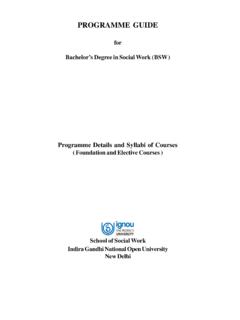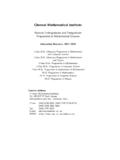Transcription of 13108 - National Council Of Educational Research …
1 Basics in EducationTextbook for CourseNCERT13108 ISBN 978-93-5007-283-7 Textbook for B. Ed. CourseEducationBasics inBasics inEducationTextbook for B. Ed. CourseFirst EditionJune 2014 Jyaishtha 1936PD 1 T MJ National Council of Educational Research and Training, 2014` on 80 GSM paper with NCERT watermarkPublished at the Publication Divsion by the Secretary, National Council of Educational Research and Training, Sri Aurobindo Marg, New Delhi 110 016 and printed at Karan Press (A Unit of KBT Plastics Pvt. Ltd.) A-215, Sector-83, Noida RIGHTS RESERVED No part of this publication may be reproduced, stored in a retrieval system or transmitted, in any form or by any means, electronic, mechanical, photocopying, recording or otherwise without the prior permission of the publisher.
2 This book is sold subject to the condition that it shall not, by way of trade, be lent, re-sold, hired out or otherwise disposed of without the publisher s consent, in any form of binding or cover other than that in which it is published. The correct price of this publication is the price printed on this page, Any revised price indicated by a rubber stamp or by a sticker or by any other means is incorrect and should be OF THE PUBLICATION DIVISION, NCERTNCERT CampusSri Aurobindo MargNew Delhi 110 016 Phone : 011-26562708108, 100 Feet Road Hosdakere Halli ExtensionBanashankari III StageBangalore 560 085 Phone : 080-26725740 Navjivan Trust Ahmedabad 380 014 Phone : 079-27541446 CWC CampusOpp. Dhankal Bus StopPanihatiKolkata 700 114 Phone : 033-25530454 CWC ComplexMaligaon Guwahati 781 021 Phone : 0361-2674869 ISBN 978-93-5007-283-7 Publication TeamHead, Publication : N.
3 K. GuptaDivisionChief Production : Kalyan BanerjeeOfficerChief Editor : Shveta UppalChief Business : Gautam Ganguly ManagerEditorial Assistant : Mathew JohnProduction Assistant : Subodh SrivastavaForewordWhat is Education ? What is its primary purpose, and what is not? Which approaches support it, and at which levels of cognition? So many basic questions that many of our trained teachers , among others, ask. And very few fora to discuss the limited responses they have found so far. Therefore, the need for a book of this kind, on basic concepts and introductions to various relevant theories, was felt. The present textbook, Basics in Education , is related to one of the core components of the two-year B. Ed. Programme, introduced by NCERT recently. It aims to help the student-teachers understand and analyse diverse concepts related to education, their premises and contexts.
4 It discusses crucial concepts like the nature and goals of education, the processes of education, different forms of knowledge and the process of knowing, organisation of knowledge in school curriculum, autonomy of the teachers and the learners, and the role of education in inculcating values among children. The textbook has been written in a self-instructional format, which provides the student-teachers with considerable scope for engaging in the processes of inquiry, critical analysis and intellectual discourse. Each chapter, in addition to the relevant content, carries Learning Checks, Activities, Summary, Review Questions, and References/Further Readings, providing opportunities to the student-teachers to engage with those concepts. As you go through it, you will see that the material reflects and propagates inclusiveness too.
5 The NCERT gratefully acknowledges the joint effort of all the educationists involved in preparing this material, and particularly Professor Bharati Baveja for reviewing it. We hope that the book will be a meaningful resource to student-teachers, teachers, teacher-educators and all stakeholders in the schooling systems in our would appreciate receiving feedback from you to bring further improvements in the book, which can be sent to the Editor of the book, Professor Srivastava (e-mail: SinclairDirectorNew Delhi National Council of EducationalJune 2014 Research and TrainingTexTbook developmenT TeamContributorsChanchal Goel, Lecturer, District Institute of Education and Training, Pitampura, New Delhi Chapter 7 Daya Pant, Professor and Head, Department of Educational Psychology and Foundations, National Council of Educational Research and Training, New Delhi Chapter Arora, Professor and Head (Retd.))
6 , Department of Teacher Education, National Council of Educational Research and Training, New Delhi Chapter 2 Girishwar Misra, Professor, Department of Psychology, University of Delhi, Delhi (e-mail: Chapter 11 Kiran Walia, Associate Professor, Department of Teacher Education, National Council of Educational Research and Training, New Delhi Chapter 8 Manjula P. Rao, Professor, Regional Institute of Education, Mysore. (e-mail: Chapter 1 Naresh K. Gupta, Associate Professor, Division of Educational Research , National Council of Educational Research and Training, New Delhi. (e-mail: Chapter 3 Poonam Agrawal, Professor, Division of Educational Research , National Council of Educational Research and Training, New Delhi (e-mail: Chapter 9viRamesh Babu B.))))
7 , Professor at Regional Institute of Education, Bhopal (e-mail: Chapter 4 Sunil Behari Mohanty, (Retd.) Professor of Education, presently residing at Puducherry (e-mail: Chapter 6 Uma Vyas, Associate Professor and Head, Departmnet of Teacher Education, Bareilly College, Bareily Chapter 5 EditorAshok K. Srivastava, Professor and Head, Division of Educational Research , National Council of Educational Research and Training, New Delhi Baveja, Professor, Department of Education, University of Delhi, Delhi number of scholars contributed towards the development of the textbook. The planning meeting was held in January 2010. The following scholars contributed towards the planning of the book: Professor M. Sen Gupta, Gurgaon; Professor Usha Devi, ISEC, Bangalore; Professor Senapati, RIE Bhubaneswar; Professor Arora, Gurgaon; Dr.))
8 Minal Narawane, Pune; Professor Mishra, NERIE, Shillong; Professor Srivastava, NCERT; and Dr. Gupta, NCERT. During the period April 2010 to November 2012, the work related to the development of textbook was coordinated by Professor Poonam Agrawal, NCERT; and Dr. Sharad Sinha, NCERT. A review meeting was held in February 2012 in which the following scholars contributed: Dr. Mohanty, Puducherry; Dr. Seema Joshi, Jaipur; Dr. Shivani Vij, Delhi; and Professor Bhattacharjee, formerly with NCERT. Professor G. Ravindra, Bangalore sent his comments by post. The Director, NCERT assigned the task of finalising the book to Professor Srivastava in November 2012. The final editing of the chapters was done by him. Professor Bharati Baveja, University of Delhi took the painstaking task of reviewing the chapters and gave valuable insights.
9 The finalised versions of the chapters were looked into by the respective authors and modifications were suggested by them. The final manuscript was relooked by Professor Anupam Ahuja, NCERT from the perspective of inclusion (gender and disable friendly). The contributions of all the scholars are thankfully Foreword iii 1. Concept and Meaning of Education 1 2. Goals of Education 42 3. Processes and Modes of Education 71 4. Knowledge: Meaning and Facets 91 5. Process of Knowing 112 6. Organisation of Knowledge in Schools 135 7. Teacher Autonomy and Accountability 160 8. Learner Autonomy 185 9. Values: Concept and Context 202 10. Education and Values 225 11. Values in the Emerging Social Context 246 Chapter 1 Concept and Meaning of EducationSTRUCTURE Introduction Objectives What is Education?
10 Etymological meaning Narrow and Broader meaning Education as process and product Concept and meaning of education according to Indian thinkers Western views on education Analytical concept of education Whether Education is Natural or Social Process? Whether Education is Intentional or Unintentional? What Does Education Comprise of? Does Education Occur only in Educational Institutions? Let Us Sum Up Review Questions References2 BASICS IN EDUCATIONInTRodUCTIonThe term education is a very common and a popular word that is uttered by many of us but understood by a very few in its right perspective. It is in one way or the other appears to be as old as the human race, though during the course of time, its meaning and objectives have inevitably undergone certain changes.
